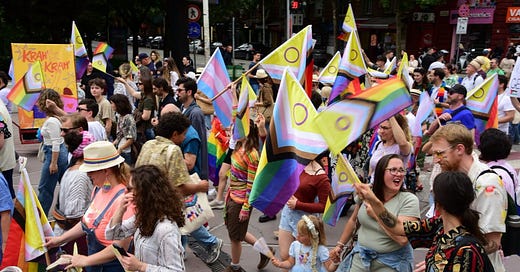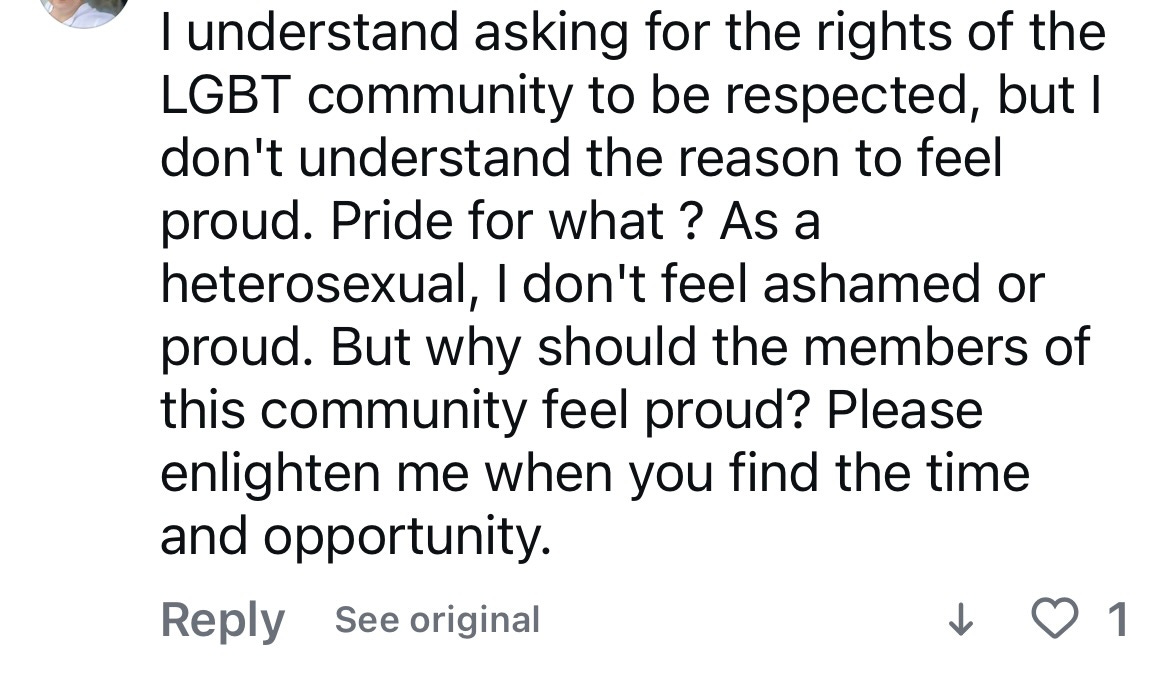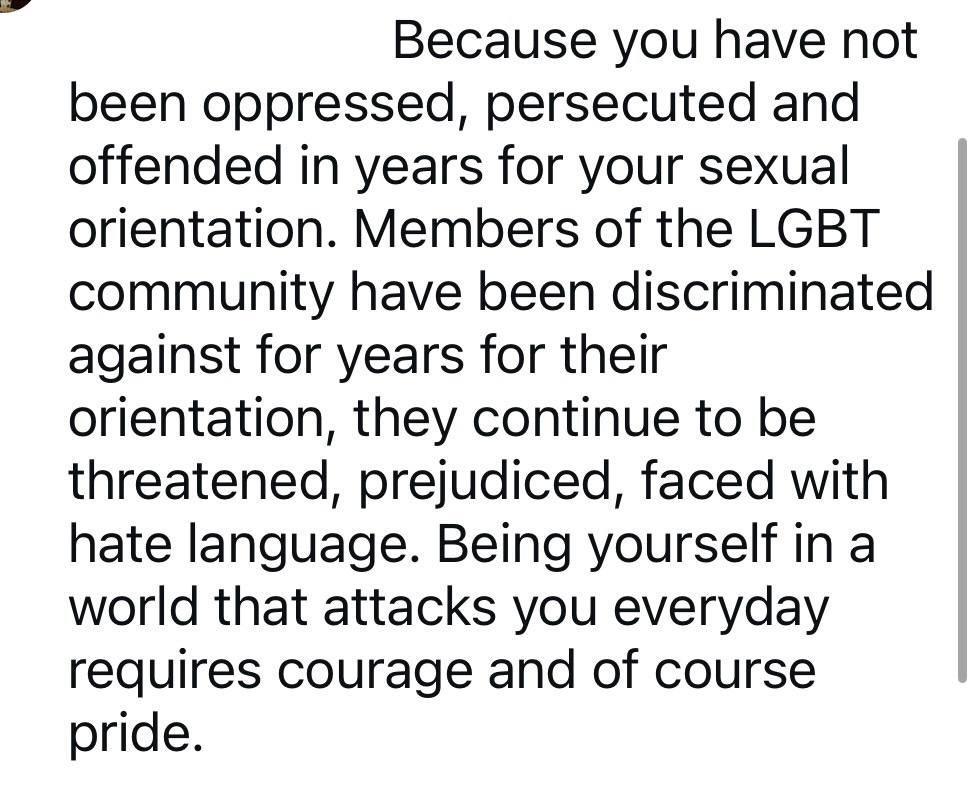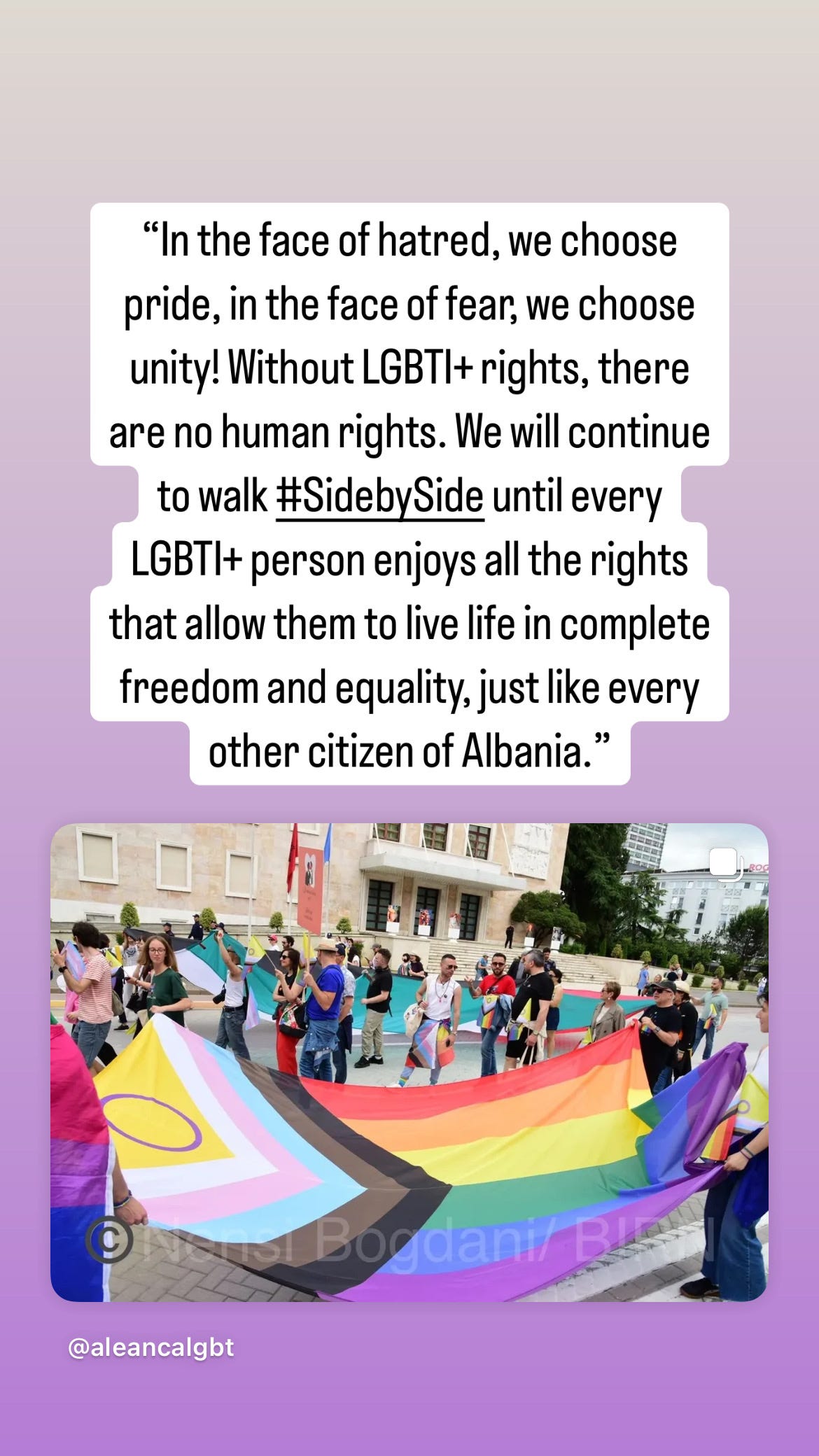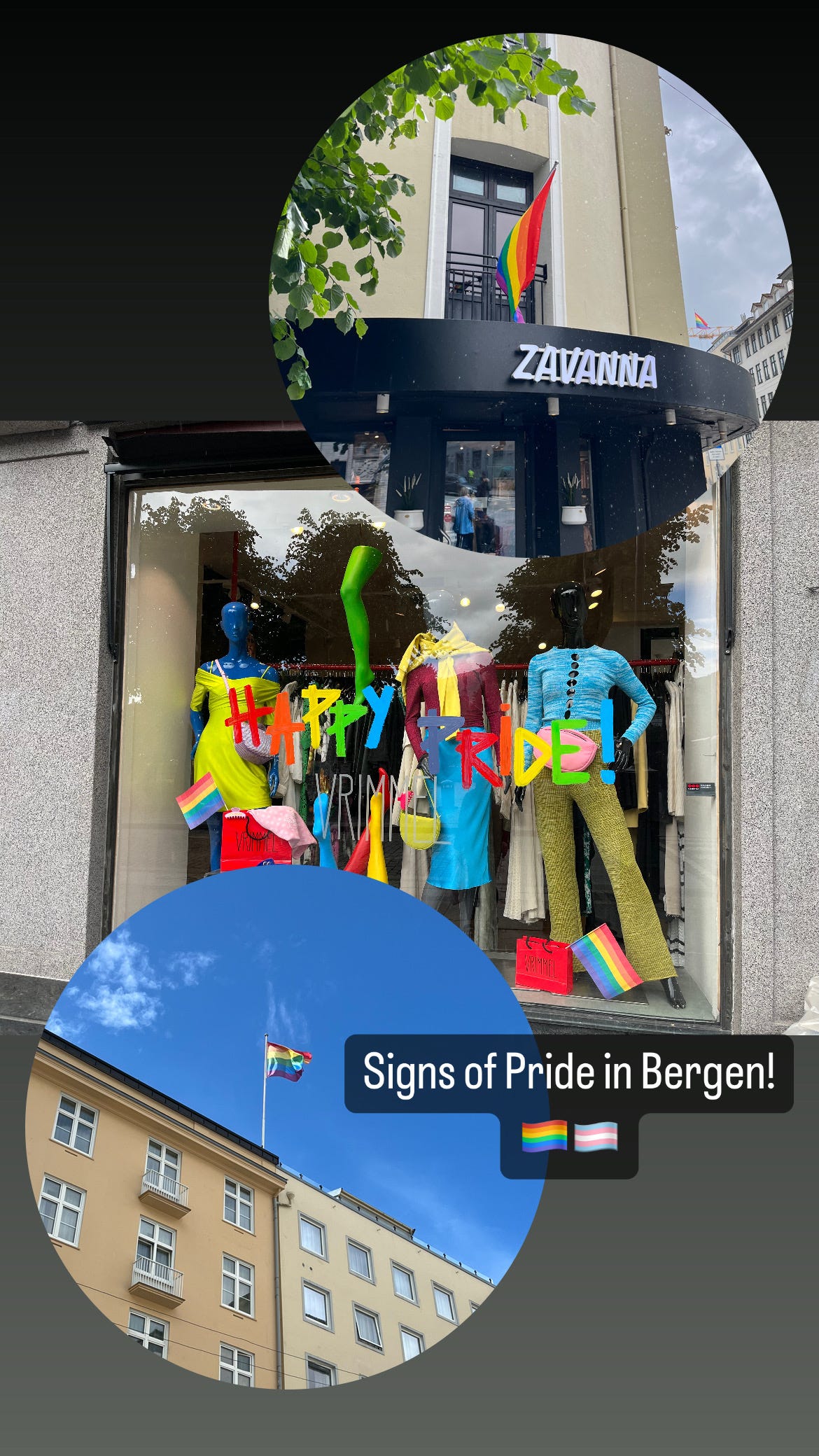Last weekend N and I attended the Pride parade in Tirana. It was the fourth location I’ve celebrated Pride in, the others being San Francisco, Seattle, and Bergen, Norway. Participating in Albania felt especially important because, while there are anti-discrimination and hate speech laws on the books, their enforcement is weak and social prejudice persists. Also, there is no legal recognition for same-sex couples. Spending my privilege to help create support and visibility for the community wasn’t even a question and I was proud to be there.
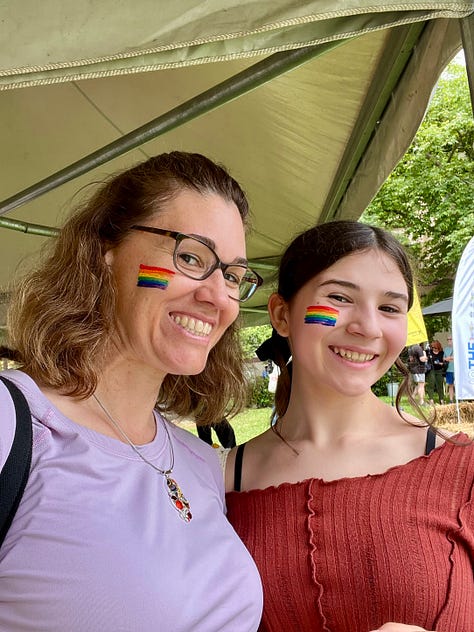
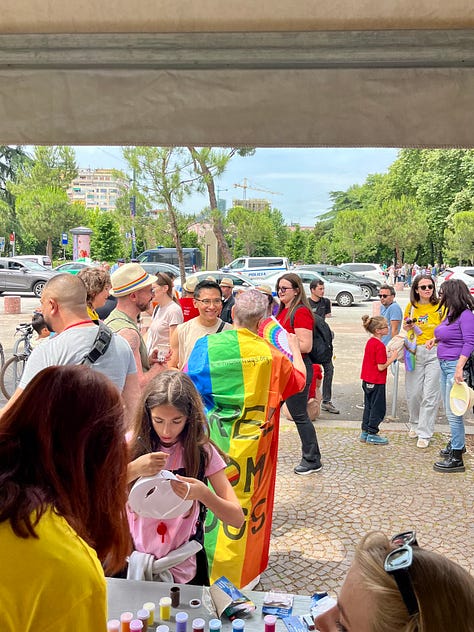
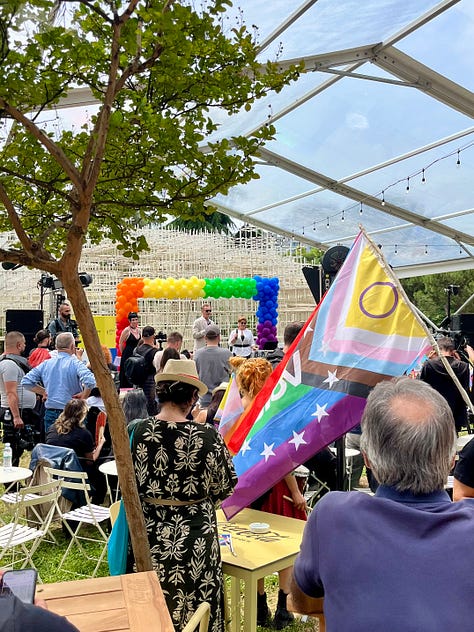
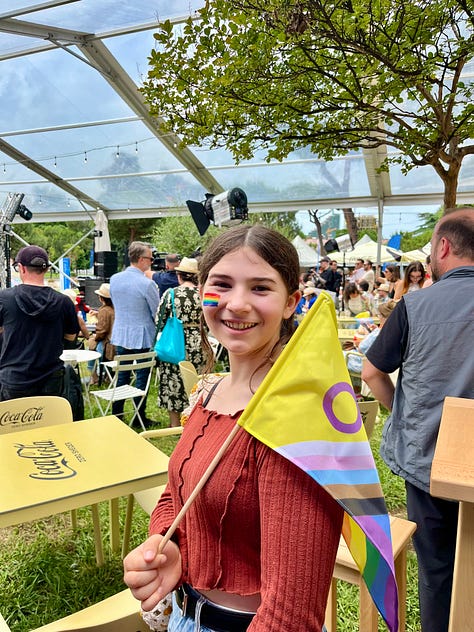
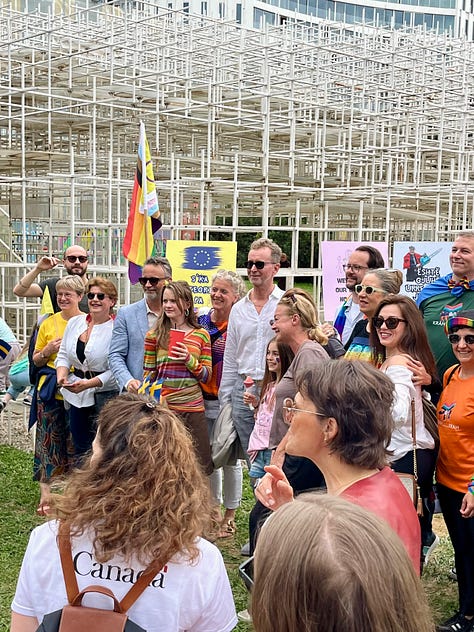
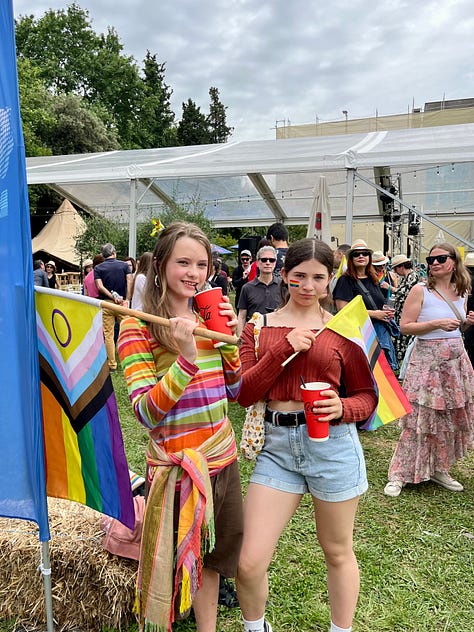
Whereas larger, more established Pride parades we’ve attended have had floats and bands and lots of hoopla, the Tirana Pride parade was a much more homegrown affair, with flags and banners, some bullhorns, several snare drums, and lots of singing and chanting. N and I got to walk in the parade and, while I had no idea what specifically was being sung and chanted (because it was in Shqip), the messages were clearly about support and love and visibility.
Some people did watch the parade on purpose, but a majority watched because it happened to pass in front of where they were having a coffee or smoking a cigarette. One man asked what the parade was for. Suffice it to say, awareness and acceptance and protection of the LGBTQIA+ community in Albania is nascent compared to more developed and progressive countries. There may a long way to go here, but there is hope.
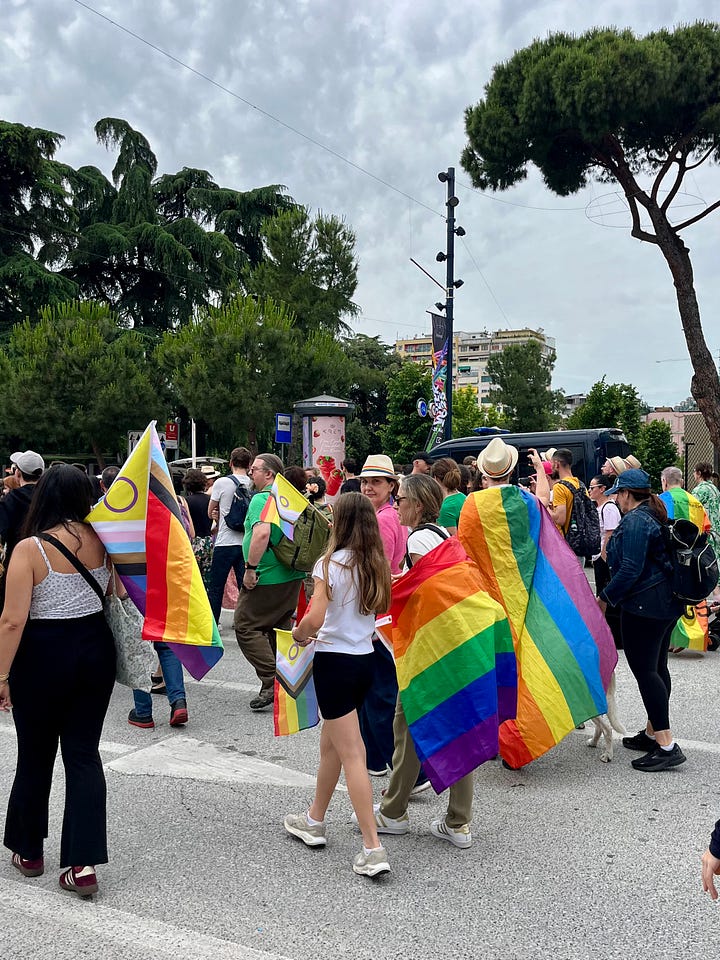
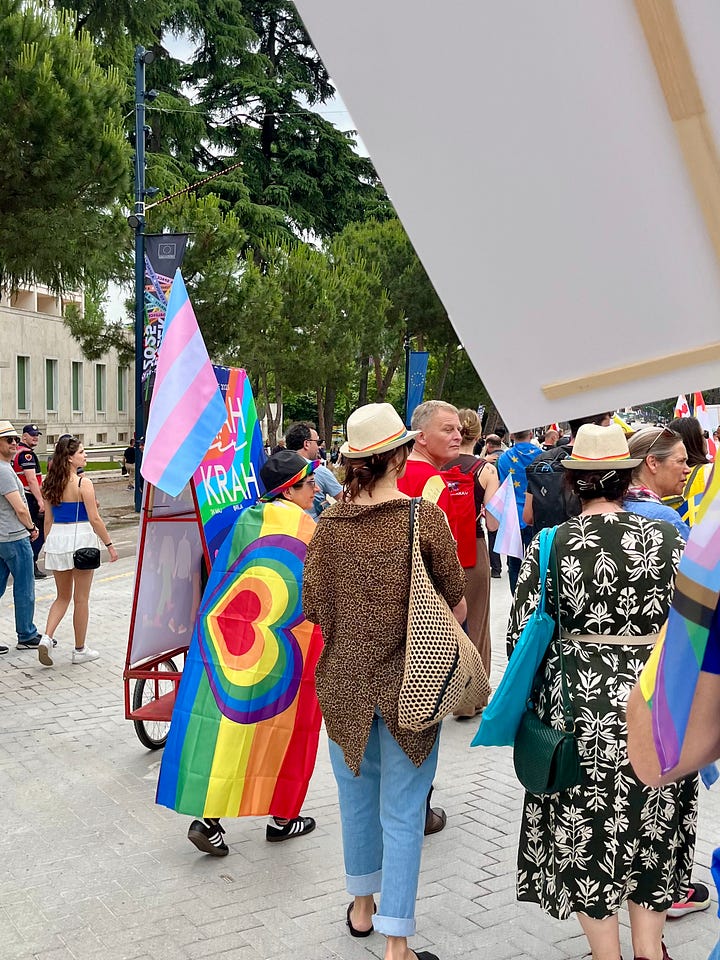
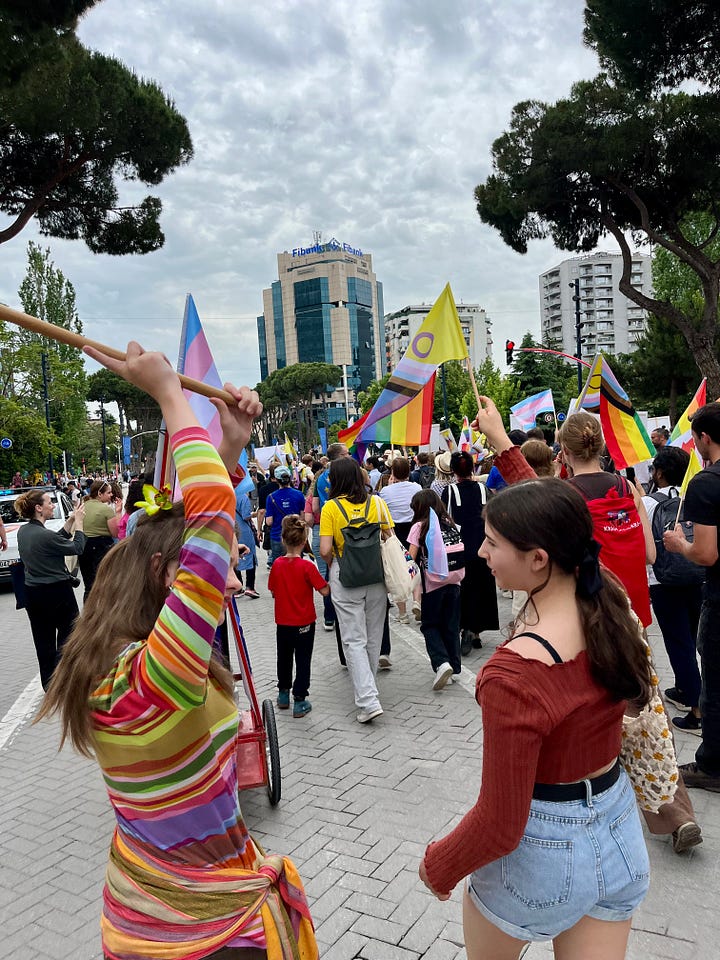
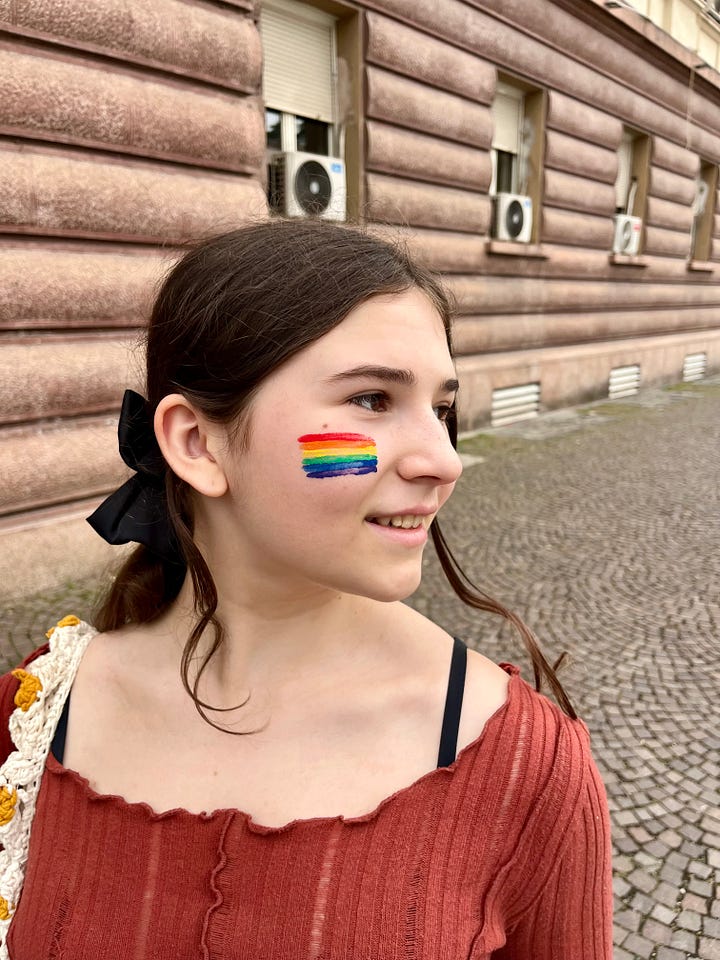
The EU representative to Albania gave a speech prior to the parade in his official capacity and basically said that if the country wants to get into the EU, it will need to advance not only its policies on equality and human rights to meet the EU standards, but also its enforcement of them. Albania recently had presidential elections (the incumbent was reelected through a process that may or may not have been free and fair) and has declared that its goal is to be accepted into the EU by 2030. Frankly, that’s quite ambitious, but if it leads to more acceptance of and equality for all people, then that’s a good thing. Of course, it takes more than policy change, but also enforcement of laws and a shift in culture and acceptance that makes a real difference.
Discourse on IG:
» See our video short of Tirana Pride.
I’m used to Pride parades happening in June, not May, so I looked into why Albania celebrates in May:
Albania celebrates Pride in May instead of June primarily to align with the International Day Against Homophobia, Transphobia, and Biphobia (IDAHOBIT), which is observed globally on May 17. In Albania, the entire month of May has become associated with LGBTIQ+ visibility and advocacy, culminating in the Pride Parade in Tirana towards the end of the month.
This scheduling is both practical and symbolic. By connecting Pride celebrations with IDAHOBIT, Albanian activists emphasize the ongoing struggle against homophobia and transphobia, ensuring that the local context of human rights advocacy remains at the center of their movement. Additionally, holding Pride in May distinguishes Albania’s events from the global Pride Month in June, which is often linked to the Stonewall riots in the United States—a historical reference that is less directly tied to Albania’s own social and legal milestones.
I documented our experience at the Seattle Pride parade in 2019 but I realized in writing this that I never documented our experience last summer at the Bergen Pride parade in Norway, so I thought I’d take a moment to do that, too:
Bergen Pride parade | 2024
It was such a delight and a privilege to watch the Pride parade in Bergen. N and I discovered it was happening by chance and so we stayed to see it. While it was much more subdued than US parades, it was no less meaningful. In fact, I found myself crying unexpectedly. N asked why and I said I was happy to be celebrating but also deeply sad because so many people aren’t free to live their lives in a way that honors who they are—not just in the US, but also around the world. I expected in my lifetime that rights would continue to be granted, not taken away, and so the celebration felt bittersweet. There is much to keep fighting for.
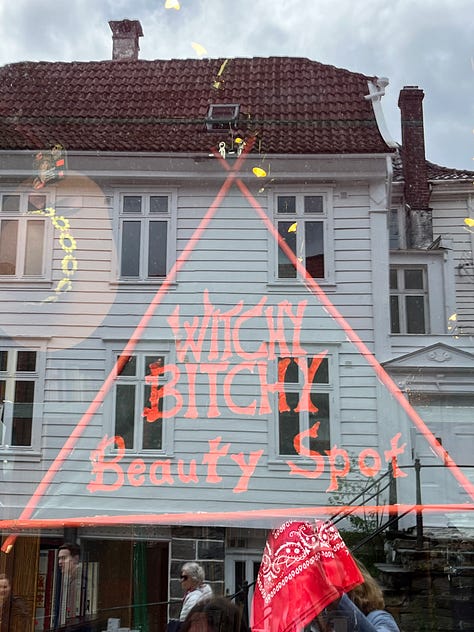

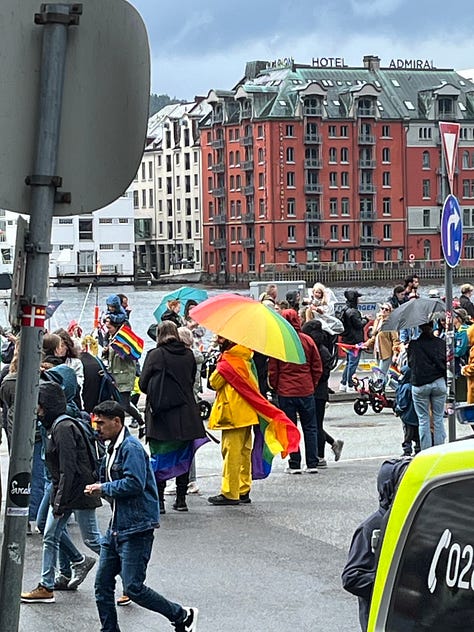
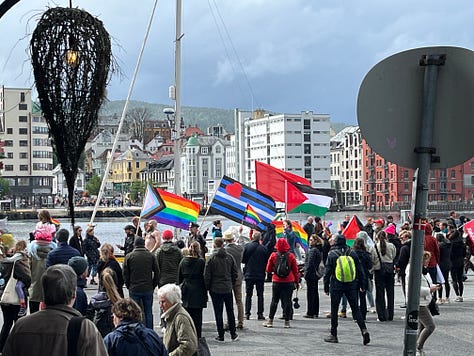
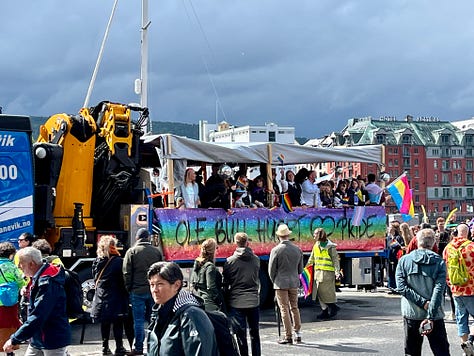
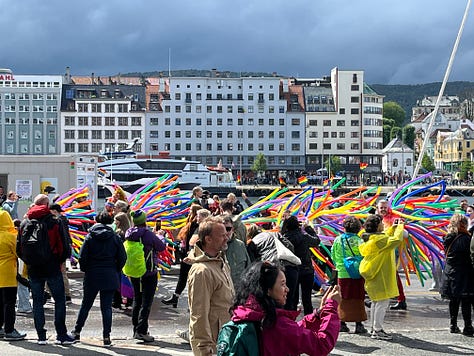
I’m curious: Where have you celebrated Pride around the world and what has been meaningful about it to you?

